#but that makes it like… even more poignant/meaningful i think
Text

Between the Power Lines by @tackytigerfic (M, 3k)
For Harry Potter, all roads eventually lead to Draco Malfoy. Or: this is not an AU! It's just Harry and Draco meeting by chance in an imported food shop in Connecticut and going on a road trip together. Featuring motels, cacti, Americana, and a hefty dose of pining.
In New Orleans, they got drunk on Bourbon Street, and Malfoy danced on his own (arms bare, laughing; Harry could have watched him all night) and later on, so late it was almost morning, they let themselves into the St Louis Cemetery—Malfoy unpicking the lock so sweetly—and walked around until the sky was pink-edged with the promise of another day’s heat. Then they sat on the steps of a crypt, watched over by sightless eyes of the statue of an angel. She looked exhausted rather than sad, Harry thought, and that made a lot of sense when he thought about his own longstanding, dull-edged grief.
It’s been ages (or 2 years) since I last wrote a rec for Tacky (I usually write for other readers, except when I’m reccing friends - then I write for them) and their birthday was the perfect excuse to put my reccing muscles back to work. I almost bailed out because I know this is one of T’s own faves and “what if I don’t do it justice?” but that tired angel banner has been sitting in my drafts for 3 long years and it deserves a proper rec!
Where to even begin? Anyone who knows Tacky is aware of their superb prose - rich and nuanced, compassionate, effortlessly funny, with a strong sense of place and a soft spot for suds scenes and filthy m-rated sex I mean devastating romance. Their writing breathes heart and personality, very much like Tacky themself. So knowing that this fic came out exactly as they intended it to should be enough to make you go read this right now, but in case you need further incentive, see below all the reasons why this oneshot is so special to me:
1. The *vibes*: if you thought that 3k is nowhere near enough to build the sexiest, most intriguing Americana atmosphere you’ve seen, think again. The aesthetics are impeccable here, decorating the beautiful and strange landscape - cacti and cheap motels included - into something peaceful and desolate, an overarching melancholy making it even more compelling. The dialogue is brilliant but the silences are just as loud and meaningful, with a quiet intimacy and a dreamlike quality that make you feel as if you're intruding a memory.
2. The romance: at this point everyone and their dog know that pining!Harry is Tacky's jam - they luxuriate in making us all suffer with him until the realization that Draco has been loving him back all along slaps us in the face. Harry is so stupid and desperate and wanton, I love it. And the way Tacky reinvents this delicious trope to make it work in new angsty ways blows my mind. Imo the slow burn is particularly effective here, a feat in any 3k story, because the narrative gives us so much character insight. We learn all the little things that make these two lonely boys tick as we watch their ever-changing perception of each other evolve from a tentative truce to reluctant confidants to a comfortable, easy love that comes naturally and earned. We often get those bits of information from imagery and emotions alone, no dialogue needed, and a road trip is the best way to explore those dynamics in a smooth, unhurried pace.
3. The journey: this is truly an immersive journey, not only physical as we keep jumping from one destination to the next, but also emotional, as we learn more about their vulnerabilities and desires the more they gravitate towards each other. This story shows that being far away from home can be both freeing and grounding, when you’re stuck with your hot enemy someone who knows about your darkest hour. It gives you the chance to heal and visualize a different future without forgetting your past or letting go of that which has shaped who you are. I love their chance encounter and how this poignant 30k love story is told in such impressive economy of words.
TL;DR: if you’re a short form fan and prone to melancholy like me believe me when I say it doesn’t get any better than this. The whole road trip shebang mixing grief, romance and nostalgia wrapped in Tacky’s lush writing is a gift to any reader and an elegant work of art. Enjoy!!!
#drarry fic rec#phew it only took me 3 years#didn’t have the chance to revise so apologies for any typos#hbd pal!! ily
31 notes
·
View notes
Text
"I'm sick of always writing songs for you to slit your wrists to" little did Pete know then that someday we would see him happy and decide to put down the blade
#i drafted this months ago before i had any idea that hand of god leaked when it did#but that makes it like… even more poignant/meaningful i think#like. he had no idea. he was being picked apart and had no clue that he would even make it (the poets are just kids who didn’t make it -#went to sleep a poet and woke up a fraud - etc)#like idk just tourdust and all this and that last post i rbed… look at this. survival songs#she speaks!#fob#fall out boy#pw#pete wentz
83 notes
·
View notes
Note
Love your JJK metas - apologies if I missed it, but any thoughts on Gojo feeling that he was "left behind" and has to "catch up" to Geto before slaughtering the higher ups?
I don't think the impact Shibuya had on him was really explicitly explored, except for that one panel where he said it was his responsibility, but him internally seeing it as following Geto's path in a way surprised me - it makes sense to me, but it doesn't at the same time.

This is a question I really wanted to answer, but delayed for a long time because I wanted to think it over. When the exhibition changed and Gege released his original draft for this scene, it helped clarify a lot of my thoughts on this scene.
"If you want to kill me, kill me. I wouldn’t mind if it were by your hand. But make sure mine is the only life you take.”
These lines become more meaningful if you think of them in the context of earlier events in Hidden Inventory. It sheds light on a lot of scenes from the flashback arc.
In particular this scene.

In his post-enlightenment high Gojo could kill the entirety of the Star Plasma Cult and feel nothing about it to punish them for Riko's death, but he lives the ultimate decision up to Geto.
In that moment Geto convinces him that killing these bystanders would be pointless, because society has other methods for punishing the members of this cult. Specifically he tells Gojo that it's not their job as Jujutsu Sorcerers to punish these people. He basically confines Gojo to the morality of a Jujutsu Sorcerer. Sorcerers kill curse users yes, but they never use their curse techniques on other people like the members in the crowd who don't fight back. Jujutusu Sorcerers aren't a part of the japanese justice system, they exist for one job and that is to deal with curses and curse users in order to prevent them from hurting normal people.

So Geto's lpong explanation to Gojo to talk him down from slaughtering the crowd that's applauding for Riko's death amounts to "That's not our job." He also emphasizes how killing these people wouldn't accomplish anything, because the group was going to disband anyway, and these are just rank and file believers the leaders of the cult are already gone. So in total two reasons, 1) it's not our job, 2) this murder wouldn't accomplish anything.
In the KFC breakup, Gojo parrots Geto's own arguments about killing right back at him. Notice that when they're having their argument Gojo never brings up the fact that killing is wrong, but that killing non-sorcerers is pointless because the sheer amount of number of people you would have to kill is so enormous it's impossible.

Geto's methods are wrong not because they're immoral but because they're impractical. It's not whether or not killing is right or wrong. It's meaningles killing vs. killing with a purpose. Geto's goal is completely impossible for him to accomplish, so all the people he killed in name of that goal died for no reason.
Gojo and Geto are specifically arguing about methods, not morality. Gojo is especially troubled because he's trying to appeal to Geto using the morality that Geto taught him, obligation as a sorcerer, justice, killing with purpose, but now it's all falling on Geto's deaf ears. I think it's poignant Gojo at this stage in his life can't really form a moral argument of his own just repeat Geto's words back at him, it shows how much Gojo was using Geto as a guidepoint.
Gege even says in the databook the reason Gojo stopped himself from killing the cult is that he was using Geto's moral reasoning and not his own.

So in a way, it's Geto's words that prevented Gojo from being a monster all the way back in Hidden Iventnory. Yet, we see in premature death Gojo's completely unable to talk Geto down from the ledge he was standing on.
Even though the words he's using are Geto's words. Perhaps, because the words he's using are Geto's words. Gojo's faith in Geto as a partner and a moral guidepost was so unshakable he's not capable of reconciling with the fact that the person standing in front of him right now slaughtered a whole village.
Geto leaves, and Gojo lacks the words to make him stay. However, in spite of the fact that this scene is called the KFC breakup this, Geto and Gojo aren't ending their relationship. In Jujutsu Kaisen Zero, Geto is surprised by the fact that Gojo still trusts him and feels the same way years later. In Gojo's dying dream, he states that he would have been satisfied losing to Sukuna if Geto was there to wish him good luck before he left. The Geto he pictures is the one in his Gojo-Gesa, the corrupted adult Geto, and not the one he used in childhood.

This is also after Geto expresses jealousy that Gojo wanted to provide a challenge to Sukuna and force him to go all out, because Gojo understood Sukuna's isolation from being the strongest. Because Geto and Gojo's relationship began from the fact that Geto was the only other special grade in their year and therefore the only one able to understand Gojo by being just as strong as he was. Only for Gojo to immediately say that he wasn't satisfied going all out against Sukuna, because Geto wasn't there. It wasn't Geto's power he needed, but his presence.
Geto wasn't leaving Gojo. He was leaving Jujutsu Society. However, since Gojo is such an integral part of Jujutsu Society, it's essentially the same thing. They're not breaking apart because their no longer friends, but because their morals are so different. Even if his attempts at reform wasn't so radical as killing all human beings, Gojo still wouldn't be able to leave with Geto because without Jujutsu Society there is no Gojo Satoru.
Gojo doesn't believe that massacring half the world is possible, but in a way he probably wouldn't believe even a less extreme reform is impossible as long as it was accomplished from the outside. Gojo has always been an internal reformist while at the same time being a radical. Gojo stated this early on he can just kill the people on top but that would make him a monster.

Remember what I emphasized above, Geto convinced Gojo not to slaughter the members of the Star Cult because it's not a Jujutsu Sorcerer's job to punish people like that. If he crossed that line he'd no longer be a Jujutsu Sorcerer. Gojo not only lives to be a sorcerer, but the time in his youth when he was with Geto was the only time he ever felt understood and that there was someone he could rely on.
Geto crossed that line and when he killed the people of Nanako and Mimiko's village (the way that Geto wanted to kill Riko's murderers that day), he was no longer acting as a sorcerer. Geto stopped being a sorcerer, but Gojo couldn't follow him because Gojo lives to be a sorcerer.
Gojo's plan is therefore create sorcerers strong enough that they can support each other the way that him and Geto should have. Create strong allies so that in the next generation no-one will be left behind.

Gojo's belief is that what he needed was stronger allies, not a systemic issue. When his attempts at reform fail, and he wakes up to see that all of his students have had execution orders placed on them by the higher ups he finally gives up on the notion of internal reform.


Gojo eventually ended up committing a mass slaughter for his perceived greater good. The same kind of mass slaughter that Geto prevented him from doing that day he avenged Riko's death. By doing that, he stopped being a sorcerer.
Now that we've finally come full circle I'm going to explain what I think Gojo means by "I can't do that. That day I was left behind, so I have to catch up."
The most direct interpretation is that Gojo is echoing Yuta's sentiment. Geto became a monster all on his own and left Gojo behind. Now, years after the fact Gojo is realizing that Geto's violent action was necessary and he's essentially leaving his role as a sorcerer to become more like Gojo. He's finally understood why Geto did what he did, years after the fact, and far too late.
In one sense Gojo is becoming Geto in this scene. In another sense, he's recalling how he felt years before when he watched Geto walk away. Geto is the one who kept Gojo from being a monster and kept him on the path of being a sorcerer, only for Geto to go off that path himself. Not only that though, but in their final conversation, Geto made sure to still try to keep Gojo on that path.
Remember this line from the original draft:
"If you want to kill me, kill me. I wouldn’t mind if it were by your hand. But make sure mine is the only life you take.”
This line is essentially the same as this, but look at the paneling.

Gojo is about to unleash a hollow purple on Geto, but when Geto disappears into the crowd of people he stops. In order to kill Geto, he would have had to kill several innocent people in the crowd so Gojo hesitates.
The original draft lines indicate that Geto did this on purpose. He told Gojo to be sure only to kill him and not kill anyone else because he still wants Gojo to remain a sorcerer. Geto was resolved to become a monster on his own and didn't want to drag Gojo down with him.
Geto is leaving and he doesn't want Gojo to become with, because Gojo is the happiest when he's a sorcerer.
In the Hidden Inventory Gojo is playing the role of Yuta, begging Geto not to become a monster alone only to be left behind. In the future Gojo resolves to become a monster like Geto. Even though he's finally trying to understand his friend, he's a year too late. Geto is dead and he can't catch up now.
159 notes
·
View notes
Text
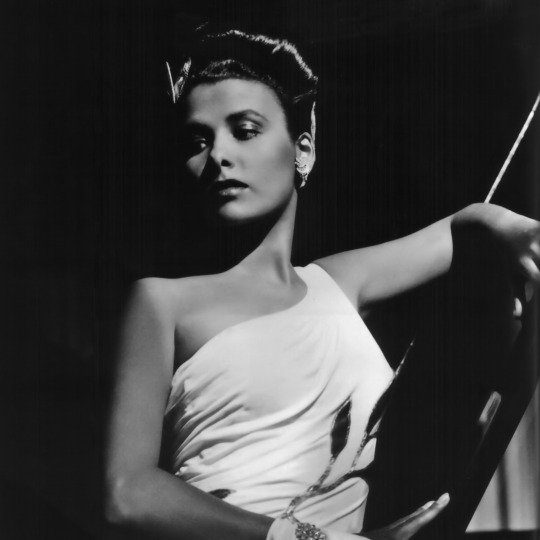
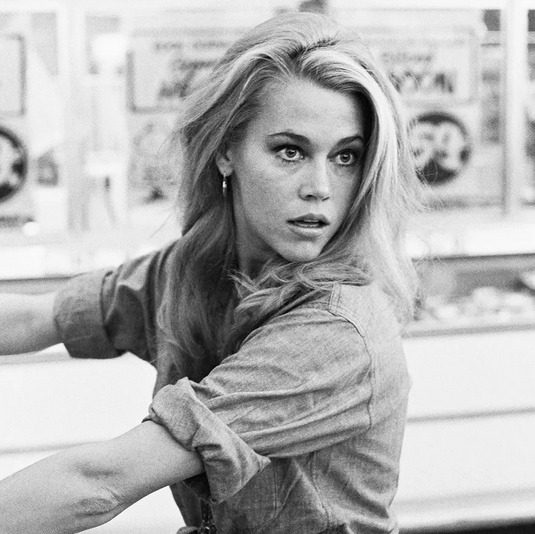
Propaganda
Lena Horne (Cabin in the Sky, Stormy Weather)— Incredibly talented biracial actress, singer, dancer, and activist (she did so much work towards integrating audiences). Because of the racism of the era, she rarely got to be the lead actress but filmmakers loved her so much that they would often create stand alone segments within a film to highlight her beautiful singing, knowing that these segments would ultimately be cut from the film by censors in areas that forbid films with Black performers. Also, she's just so wonderful in Cabin in the Sky as a gold-digger villain who is not the least bit subtle about her intentions. I would highly recommend checking out her work.
Jane Fonda (Barbarella, Sunday in New York, Barefoot in the Park)—Feminist icon, LGBTQ+ rights activist since the 70s, Civil Rights and Native American rights advocate, environmentalist… she really is THE woman ever
This is round 4 of the tournament. All other polls in this bracket can be found here. Please reblog with further support of your beloved hot sexy vintage woman.
[additional propaganda submitted under the cut.]
Lena Horne:
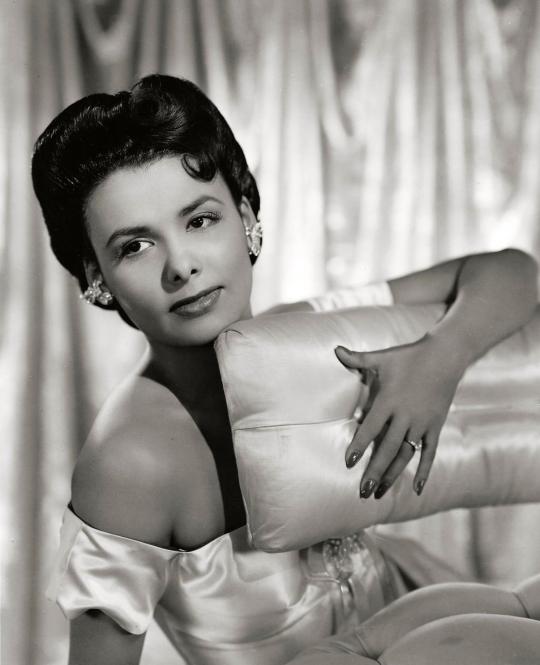
Black American powerhouse singer and actor who faced all the usual bullshit that any BIPOC faced in vintage Hollywood and achieved legendary status anyway. Also a Civil Rights movement icon.

She was a gem
She was so beautiful and those dimples are amazing! Truly depressing how badly Hollywood treated her because she was black. I would love to have seen what she really could have been if they didn’t cast her in so many yikes roles. She’s got gorgeous eyes and that body! Her joyful smile makes happiness sexy!
youtube
Civil rights actress, singer, dancer, actress, she's got the whole package
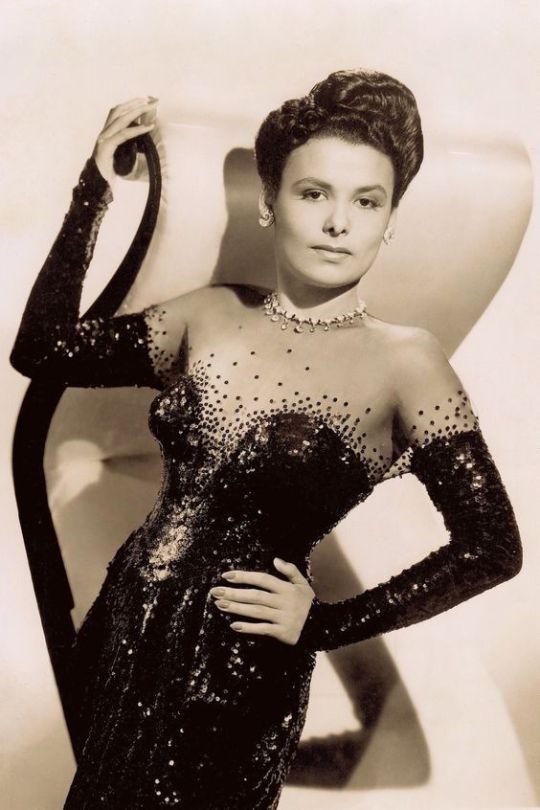
Lena Horne was a wonderful singer and actress who largely starred in black cast musicals. While she had a lot of main stream success, she ultimately lost the lead role in showboat (a role she had played on the stage) to a white actress due to hollywood's prejudices. She was also blacklisted during the HUAC hearings, but she still managed to be hot be hot as fuck and have a career spanning decades, working with more well-known stars like Judy Garland in musicals, and working on stage and releasing albums when her hollywood career began to suffer.
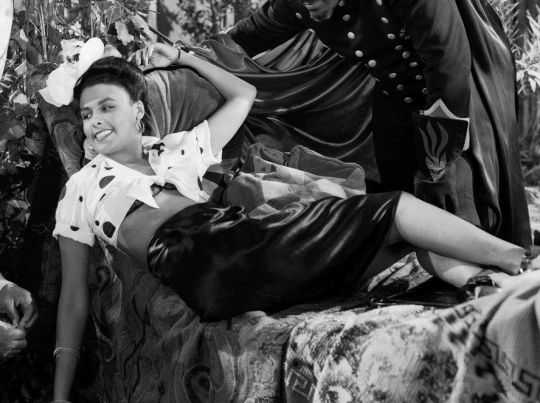
Miss Horne became famous during a period of time when Hollywood had very few meaningful roles for people of color. Although she is more so known as a performer, she starred in two successful all black productions (Cabin in the Sky & Stormy Weather). If that wasn't enough, she also guest starred on the Muppets (Season 1, Episode 11)

Jane Fonda:

" I assume she's already been submitted but I gotta make sure. I think there's an element to movies like Barbarella or her segment of Spirit of the Dead of those having been directed by her husband, who famously made movies about her being hot, and the incredible costume design also helped, but good lord. Look at her"

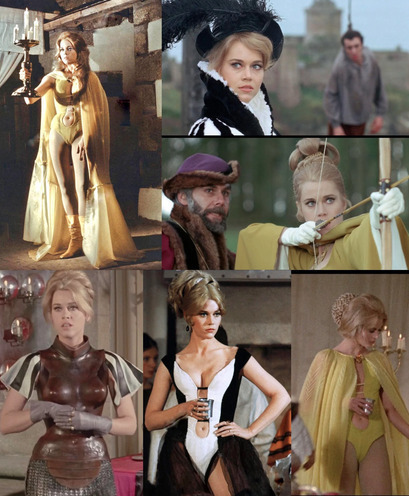
"She was so pretty, dear lord! She was and still us stunning. She’s great at comedy and drama."
"Shes so hot im so gay for me i will let her hit me with hers car"

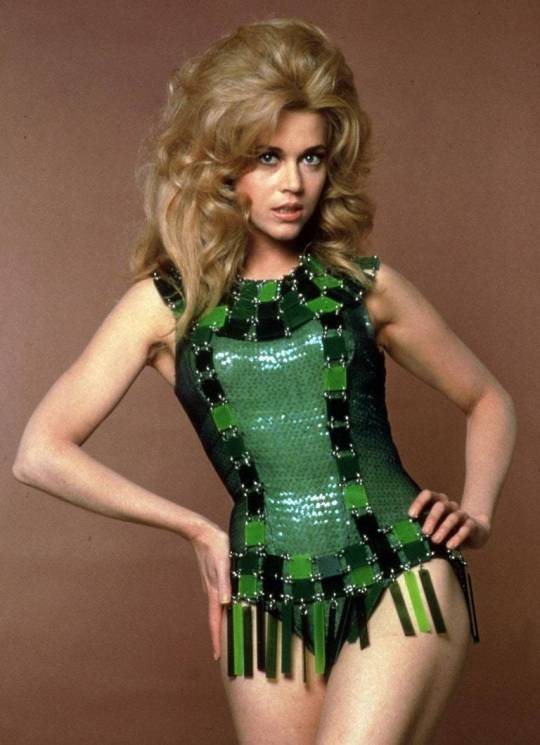
"Gorgeous and also still getting arrested at climate protests, which is sexy behavior"
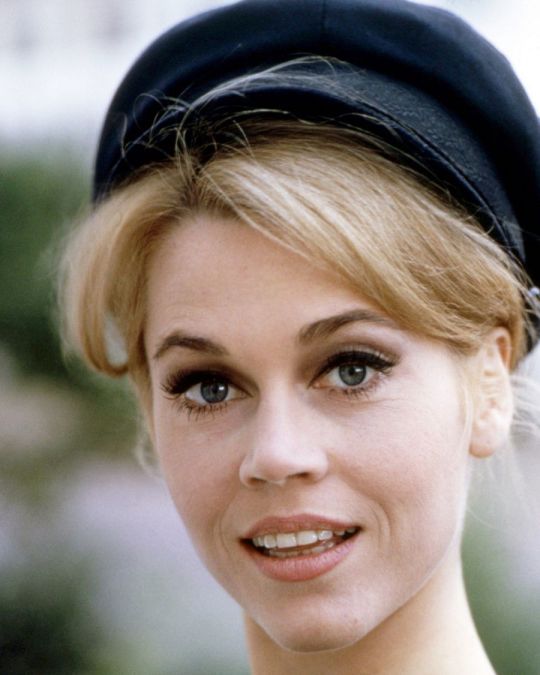
"Watching her in Barefoot in the Park seriously made me, a straight woman, question things"
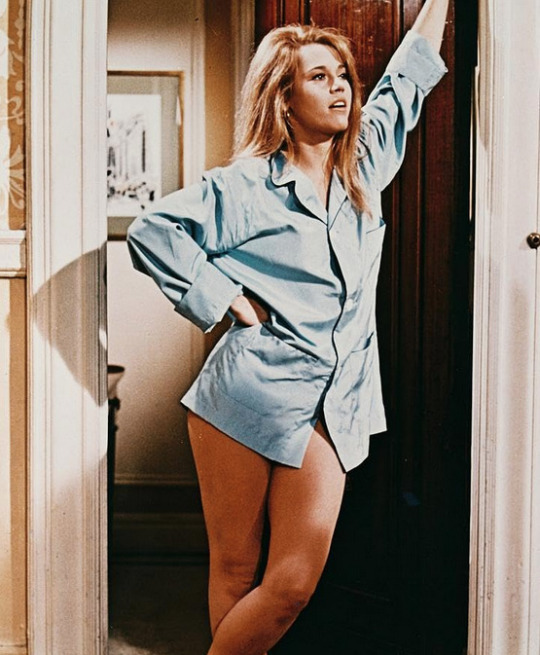

"PLEASE I LOVE HER SO MUCH"
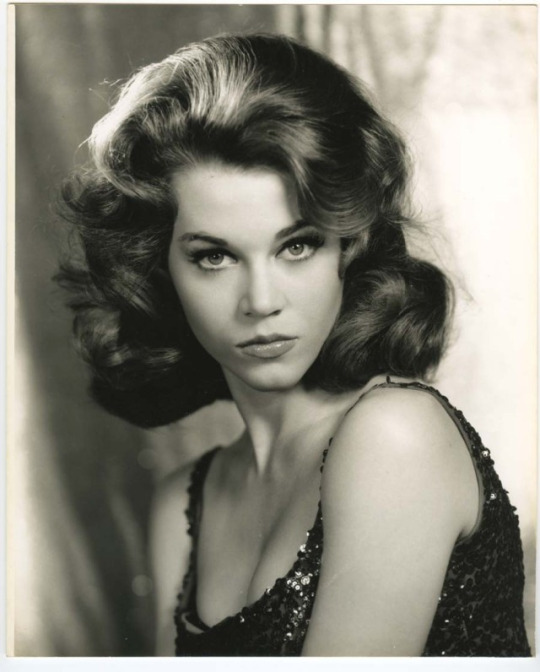
"Her vibes in these movies are so interesting because she, the daughter of an Old Hollywood star, went on to make both poignant dramatic movies and the some of the silliest things you've ever seen but even in the silly space adventures and sexploitations there's always this undeniable gravitas to her. It's like she's able not to take herself very seriously but at the same time never stops having this grace and elegance and makes it all work together. And she's always been very politically active which is also sexy. Her famous mugshot is from 1970 so right at the cutoff mark but come on"
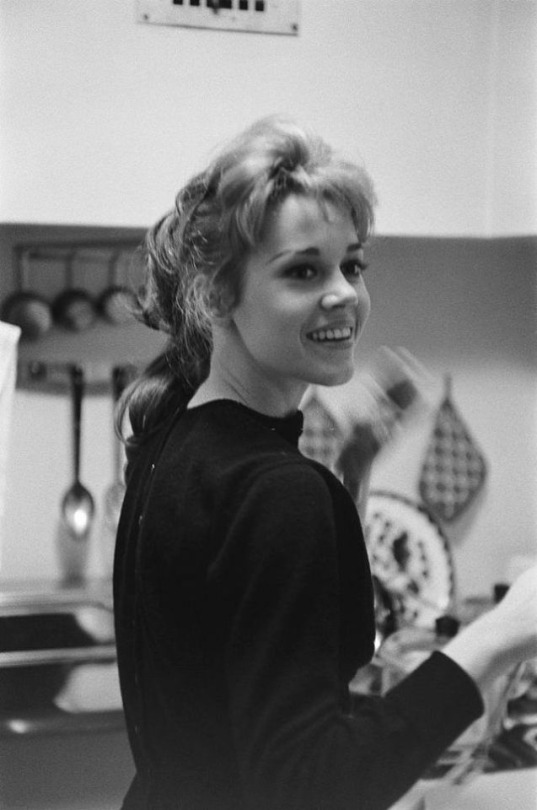
225 notes
·
View notes
Text
ok I think I’ve played enough of the dlc where I feel like I can talk about it now and lift my spoilers embargo… overall I had SO much fun!! there’s so much to love about it and only a few things I didn’t like! more detailed thoughts under the cut:
Gameplay-wise, I thought almost every single boss was fun and rewarding to fight… my faves were Divine Beast Dancing Lion (best ost in the entire game by miles), Rellana, and Messmer. I also really loved the exploration?? My favorite kind of games are the ones where you have to sniff out every corner of the map in order to find hidden paths forward… the fact that you have to really poke around to find huge areas of the map, and how the traversal is so layered and non-linear, was THRILLING to me!! so much more interesting than the base game!!
Story-wise, what spoke to me the most was everything about the Hornsent… Belurat was my first legacy dungeon, and I was so wowed by the gorgeous unique architecture and the sheer desolation of the place that it really stayed with me. Both the environment and the Hornsent NPCs do such a great job of conveying the pain and tragedy of what happened to them, while at the same time, not simplifying them into some kind of faultless utopia… their society was proud and harsh and cruel (not just to others, but to their own people), but it was also bursting with art and culture, and it was home to everyday people who made delicious stew for their loved ones:
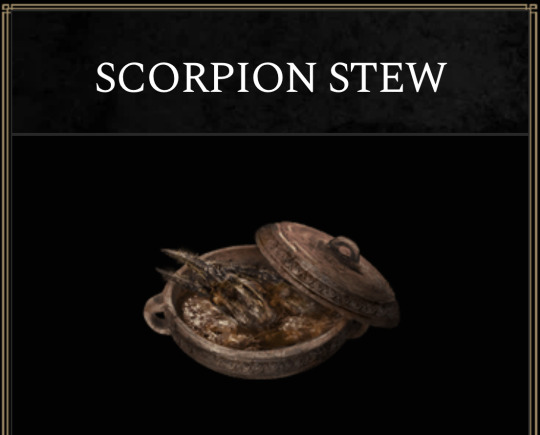
“Scorpion simmered in a black soup. Traditional meal of the hornsent. Once made with love by a certain elderly woman for the family table. Having long gone cold, this soup gives off a rank, sour smell.”
Some of my very favorite NPCS were the Hornsent Grandam and Hornsent (the guy); I thought their quests told such poignant stories about loss and the meaning of justice and revenge (I especially think Hornsent’s quest complements Marika’s story so well!!). The way they portrayed this civilization’s downfall was so beautiful and tragic!
Also the fact that the NPCs talk during combat is SO GOOD??? At first I was kind of annoyed that I had to summon Hornsent for Messmer’s boss fight to do his quest, but in the end I was so glad I did because his dialogue during and after the fight is incredible!! plus the NPCs talking to EACH OTHER during the Leda invasions?? and need I mention IGON… this is the real best new addition they made to the game
Now for the one big fat thing I didn’t like….
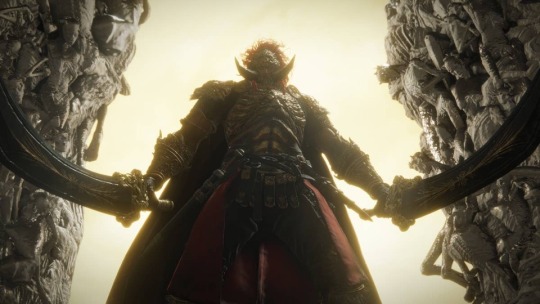
so I had actually heard about the leaks before playing the game and was like ok. if this is true theyre gonna have to really justify this to me because my initial impression is uhhh. lol??? And now that I can confidently say that I’ve combed the game top to bottom for pieces of this story, I really dont think the game succeeds at justifying Radahn’s appearance?
What I mean by “justify” is that, in my opinion, if you’re gonna bring back a fan-favorite character who was previously dead, and not have it come off as cheap fanservice, it needs to feel like this character’s presence matters — that they have the necessary buildup, that their appearance has a significant weight to it, and that their screentime fleshes them out as a person in a meaningful way. I don’t think the dlc achieves this at all with Radahn. Yes, his appearance is directly foreshadowed if you do Freyja and Ansbach’s quests, but it isn’t enough to just state in advance that he’ll show up… my problem is that, even with these NPCs’ dialogue, Radahn feels like a total non-person. We hear almost nothing about what his thoughts or feelings about this situation might’ve been (just Freyja’s assertion that he would have approved of “endless war, to invigorate the soul”). We get plenty of insight into Miquella’s character because there’s so much material about him, but there just isn’t the same investment into Radahn’s character, which makes his triumphant return fall really flat for me.
I think for me what would’ve appropriately justified Radahn returning is if Freyja gave us more details about who Radahn was as a commander during the Shattering… like, some jumping-off point to really get a sense of what his motivations might’ve been… OR, they could’ve even added another Redmane NPC with views on Radahn that conflict with Freyja’s (there is literally a minor boss, the Red Bear, who was stated to have been a Redmane!!!)… what’s still a mystery is why Malenia tried to kill Radahn, and why he resisted, and the DLC doesn’t give us any concrete information about Radahn’s actions or goals during the Shattering that would have caused this. They don’t have to spell it out for us!! I just needed SOME attempt to engage with Radahn’s character in the DLC material if they’re literally gonna bring him back from the dead!! Because as it stands, he shows up and fights us without a word or even an expression, like a glorified action figure!!! it’s LAME!!!!!
totally loved the DLC except for that part. anyway stan Elder Inquisitor Jori
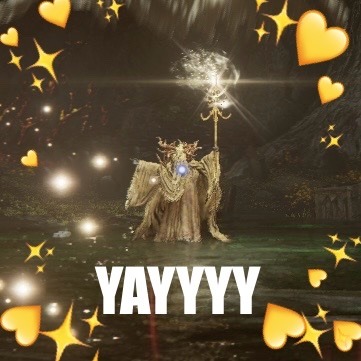
#shadow of the erdtree spoilers#<- still gonna tag spoilers but I don’t care about seeing spoiler content myself anymore
110 notes
·
View notes
Note
Should the dev team have committed to Zelda's draconification being permanent and have her stay a dragon at the end, and would that have made for a more honest and poignant ending than the one we got? Some fans think that the ending we got renders her sacrifice completely meaningless and devoid of impact.
The dev team absolutely should NOT have committed to Zelda’s draconification. It would have ruined the entire story and narrative for Zelda’s character and Hyrule itself.
Some people think it made the sacrifice meaningless and devoid of impact. . . But it didn’t. Her choice was her own and it was a statement of dedication to Link and Hyrule as a whole. It was also utterly tragic that she had to do this in order to heal the Master Sword. I am still in utter distress whenever I play the game and watch the memories, despite knowing the ending. Because it’s the tragedy she endured willingly that makes the sacrifice meaningful, not the permanence of it. The sacrifice would hold no value had it been a choice Zelda made knowing she would be reverted.
She didn’t. She thought it was permanent.
And I’m honestly tired of some of these fans just not wanting a happy ending for her character. She deserves peace and a happy life. That’s what she got, which is absolutely justified. And those who think of a story so plainly and only at the big picture miss the details and narratives that point directly towards the ending we actually got.
Let’s talk about if she didn’t turn back.
Firstly, we can start with simple things that personally can be reworked in the future but would create a hurdle for the devs in the future— Zelda would never die as a dragon, she is an immortal being. The Zelda series is quite literally founded upon a reincarnation cycle between Zelda, Link, and Ganon. And only one of them is linked through blood: Zelda. That would cause a bump in the whole reincarnation foundation.
Beyond that, Zelda’s character development would suffer with this choice becoming permanent.
Any fan upset by the ending doesn’t understand the implications of Zelda being granted a second chance. She dedicated her entire life before the calamity to training and praying, only to have her magic awaken AFTER the champions, her father, and nearly Link are killed. Her efforts for the next century keep her body suspended in time and keeps Ganon at bay through her light power. When she wakes up, she is granted a ‘second chance’. In reality, it is simply the life she fought for and rightfully deserved.
So after she made Hyrule her home again, unifying the scarcely populated land and invigorating its culture, she is once again forced to sacrifice everything. This time, she does so as a leader and as one who holds such strong power. Her journey as a Queen leads her to become the very leader she WANTS to be, not the one she was constantly reprimanded to be by her father and the old kingdom. And she learns this throughout her time in the past, with Rauru as her guide.
And that leads us to this point: the belief that to rule is to give up everything.
But where others are punished for this choice (despite Zelda’s warnings, Rauru’s ignorance of Ganondorf’s power leads to Sonia and his own death), Zelda is REWARDED for her choices.
Because she did not just claim that another will defeat Ganondorf and seal him away until present day like Rauru.
Zelda did much more. She raised the sky islands, made a promise with Mineru, solidified the aid of the sages, collected the Master Sword and chose to give LINK the best chance he could have against Ganondorf. Zelda did every single thing she could to ensure Ganondorf would be defeated. She even aids in the final battle, as her will is to end that evil and grant Hyrule the peace she herself will (presumably, to her own knowledge) never experience.
So when she is rewarded for her efforts, by being bathed in sacred light and her body reversed to its previous state. . . It is entirely in line with the narrative thus far. Additionally, Rauru and Sonia present themselves as a ‘second chance parents’ for Zelda. A supportive, patient father in Rauru. A guiding teacher and mother in Sonia.
Tears of the Kingdom mirrors Breath of the Wild in terms of Zelda’s development and story. To give an ending where Zelda remains a dragon. . . It would have been tragic and dishonest to the story that we got.
If you want to read something more in depth and not written by someone with one eye open, this post grants a well rounded answer to this question.
#loz totk#loz totk Spoilers#loz tears of the kingdom#loz totk Zelda#totk Zelda#some people don’t want Zelda to be happy and for those people I hope their pillow is forever hot#I am protective of her because some people just want to misunderstand her and I don’t like that lol#anyway she got to have a peaceful life with link after all this so I am happy :)#zelink#botw zelink#loz botw#botw#the legend of zelda#botw link#link botw#zelda botw#loz tears of the kingdom spoilers#the legend of zelda breath of the wild#Totk zelink
204 notes
·
View notes
Text
(Spoilers for Critical Role Campaign 1)
I don't have any expectations for wherever FCG will stay dead or come back somehow because I've spent 9 years watching Sam Riegel totally subvert my expectations in a narratively compelling way.
But I will say that "FCG shouldn't come back because it would lessen the impact of a narratively perfect death" is EXACTLY what people were saying about Percy's first death after C1 E68. (The first televised character death.) If he had to have an end, it was a fitting end that, while tragic, neatly tied up the thesis of the story. Would Taliesin even want him to come back? With Whitestone saved and Ripply killed, was there even much left to explore?
They found Percy's death letter telling them he loved them all but please bury him in a ditch with all his designs so he could be forgotten by history. He was so sorry for all he'd done and he could never make it up.
But they tried anyway, having to wrest Percy's soul away from Orthax. The players knew what they said in the resurrection ritual was meaningful along with their rolls. But they did not know they were also having to convince Taliesin. If they'd tried to appeal to Percy's soul in the wrong way, dice be damned, Percy was going to refuse. What we got was really meaningful and powerful roleplay (especially from Marisha and Laura) that did convince Percy along with successful rolls.
Being brought back did not at all weaken Percy's own sacrifice or the impact of his death. It forced him to confront everything he'd been running from. It forced him to see that there were people who loved him and would not let him throw himself away for them. They didn't want a martyr, they wanted their friend. It utterly changed the trajectory of his character.
There's only four ways I can think of on the table to bring FCG back:
True Resurrection — Incredibly expensive high level spell. They would have to find the materials as well as someone who both can and is willing to cast the spell in the middle of a war to stop a second Calamity. None of this would be easy. The ritual could still fail. FCG could decline to come back and the other players would not know that until they went to all the effort. The Raven Queen views True Resurrection as heresy which is why they didn't try it on Vax. How would a second chance change them?
Reincarnate — Lower level and cheaper spell. FCG would come back as a fleshy being instead of an Aeormaton. Would the experience live up to FCG's fantasies about it? How would it change them to realize they are truely alive, and always were, but are now also mortal? Reverse Veth story? Wild ass Pinocchio retelling? What does it mean to get a second chance but everything about you is different?
Wish — I think this would count as duplicating True Resurrection. High component cost and requires a high level magic user. (If it's duplicating a spiral there's no risk of no longer being able to cast Wish.)
Hag Deal — They do know a fatestitcher Hag who likes them and limes making deals even more. Orym may be able to just extend his existing deal. What are the consequences for the deal marker as well as FCG? Would the robit feel responsible for that person's fate? How would that affect how they feel about coming back and the meaning they need to make from it.
I don't think there's a right or best option because whatever we speculate on, the actual result will be full of meaning and very poignant. I can't imagine that Bell's Hells won't try to bring him back. They've lost so much already. They couldn't bring back Eshteross or Bertrand or Will & Derrig. They couldn't live with not even trying. Maybe their method works, maybe it doesn't. But at least they tried.
And if FCG does come back, they have to live with knowing that even though they saved their friends and put an end to Otohan, they also hurt their friends by treating themselves as disposable. They forced their friends to confront that each of them might have done the same and that's deeply unhealthy. It will change the character development tremendously.
My favorite film and play genre is where the protagonist dies (or nearly dies) (usually self-inflicted) at the beginning and has to journey through purgatory to find themselves again before they can return to the living. Films like Wristcutters: A Love Story (2006) or Castaway on the Moon (김씨 표류기 2009). Death matters because it reminds you to live. The journey is finding meaning in both life and death and coming back utterly changed.
#critical role#Critical Role Spoilers#critical role meta#critical role campaign 1#critical role campaign 3#vox machina#Bell's Hells#Percival de Rolo#Fresh Cut Grass#wristcutters a love story#Castaway on the Moon
105 notes
·
View notes
Text
Look, it's probably still not time to go really deep into it, but I did mention there are ways this ending where Tomura dies could work for me. Honestly I didn't have much of an issue with chapter 423 itself before the internet's emotional onslaught over it, but now that I'm hearing rumors the chapter was received well in Japan and a number of western fans have decided to couch all their disappointment in racism and rage at the target readership, maybe I should give some cursory thoughts just to counteract the stupid.
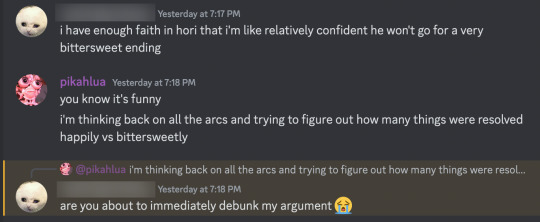
The Bittersweet Ending
Here's the thing. For all the game the bird app likes to talk about how MHA is happy and kid-friendly and not dark and that's bad somehow, it's kind of funny to me how little MHA actually meets expectations in that regard. If I were to divide MHA arcs into categories based on their endings, I would probably have to put the majority of them into the "makes me cry" category. Even arcs where the hero wins with ostensibly happy endings often have absolutely gut-wrenching moments, like All Might's retirement in the Kamino arc, Tsuyu's apology in the UA Dorm Contest arc, and Nighteye's death in the Overhaul arc. I don't think it's possible for me to watch the Sports Festival arc and come out of it with anything but mixed feelings of hope and haunting. Stain may have lost his battle, but his effect on society sure seems to give him the win when it comes to the war. The Paranormal Liberation War arc has a pretty rough ending where there may still be a sliver of hope, but goodness is it a small one.
Sure, some of the teariest moments are a result of happy scenes like Eri smiling for the first time at the cultural festival, but what I'm getting at is that MHA tends to go for more hopeful endings rather than happy ones. And those hopeful endings are often stained by some other tragedy, a price to pay for the hope. Just because MHA isn't full of random death doesn't mean it doesn't contain poignant loss. This was one of its early selling points in fact. MHA's most hopeful moments have always felt so real because the story acknowledges that these things should often play out messily. We've seen the mess, and now chapter 424 has given us a glimmer of hope. The question is now where the story will take us from here.
The Anticlimax
This post has come back for me in the most unexpected way, not gonna lie.
I often hear “anticlimax/anticlimactic” used as a negative criticism, especially colloquially. This criticism assumes an anticlimax is always written unintentionally. But that’s often not the case; anticlimax is actually fucking fantastic when placed in the right hands.
And Kohei Horikoshi is a goddamn anticlimax connoisseur.
I say he’s a connoisseur because Horikoshi has the gall, nay, the gumption–dare I say the balls to showcase the versatility of anticlimax as a storytelling technique for more than just comedy (although he does also use it for comedy a lot). He dares to use it in action scenes, horror/thriller scenes, and even fuzzy heartfelt scenes, all to the great effect of toying with our emotions. And he successfully has us feel exactly what he wants us to every time–because that’s the point. These aren’t cheap jokes; they serve a purpose!
They illustrate an actual, meaningful point about whatever scenario they are used in to make the story more realistic, to combat the fridge logic “well actually” complaints endemic to fandom. Because Horikoshi is a fan himself.
When I write "realistic," I don't mean to apply this quote here to indicate that death (especially for edgy aesthetics) is realistic. I mean to indicate that imperfection is realistic. Izuku isn't a perfect hero. Tomura isn't a perfect victim, and by victim I mean "character for the hero to save." Izuku says it himself:

A perfect victim for the hero to save would yield to the hero's attempts to turn and save them. They would see the wisdom in the hero's position and 100% change sides to agree with them. Trite.
Doing this runs the risk of erasing the victim's identity that comes before. Izuku never has a perfect answer to all of Tomura's problems with the world.
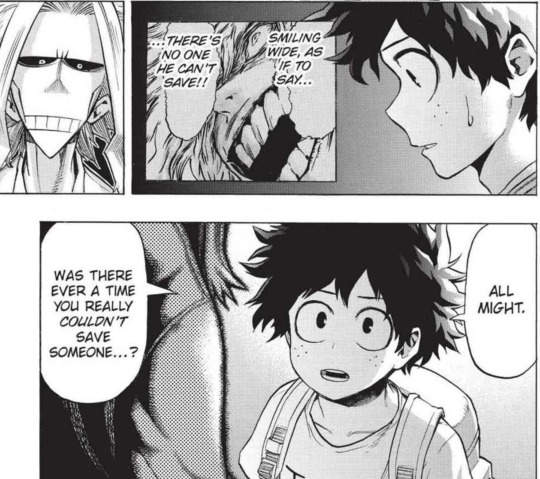
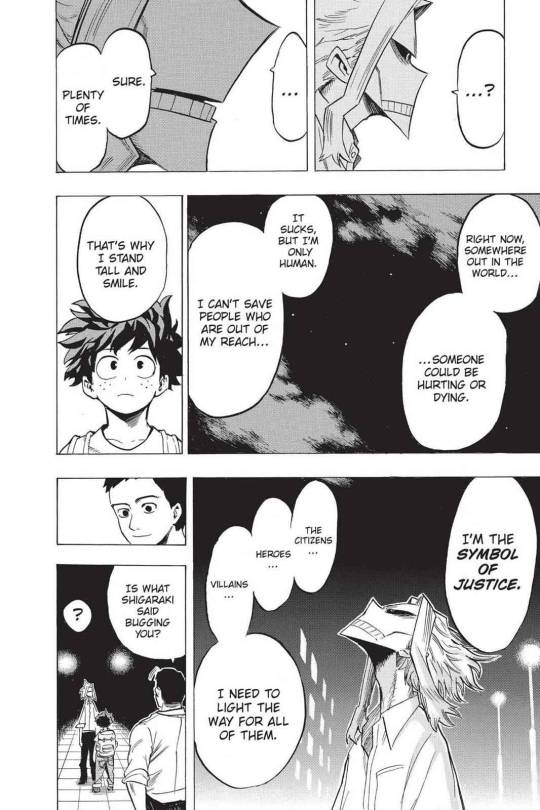
Izuku is the same as All Might. He's only human.
[...]Horikoshi has no compunctions using anticlimax in big, important, non-humorous scenes (even if the anticlimax ultimately adds humor to the scene that was otherwise unexpected). This man has no fear. He ends his famously popular take on the tried and true trope of tournament arcs with one big let-down that affects not just the audience but the in-universe characters.
[...]
You wanna tell me Horikoshi didn’t know exactly what he was doing here? You wanna tell me Horikoshi didn’t know about the fandom war over Katsuki’s hero name? That he didn’t purposefully fucking troll the fandom with this? That this isn’t the single greatest brick joke in the history of published media for its effect both in the canon and in the meta? Fuck you, we’re building up the tension around the most wildly popular character’s hero name reveal for 248 goddamn chapters (that’s five-and-a-half years) just to make it the cringiest fucking thing you’ve ever heard in your goddamn life. His hero name must be the closest audio rendition anyone can imagine shaped like a middle finger and fucking nothing less will suffice. Congratulations, fandom: you played yourselves! You made a war no one could win! Horikoshi could have chosen Ground Zero or Kacchan as Katsuki’s hero name and risked alienating half his fandom either way, but you didn’t realize there was a third option, which of course he took: to risk alienating the entire fucking fandom.
I'm just saying, an ending like this isn't out of character for Horikoshi. In light of this trip down memory lane and Izuku's parallel with All Might in that they acknowledge they cannot save everyone, I'm interested to see what Horikoshi does with this ending whether or not Tomura survives. What sort of hope will he offer?
The extended ending arc
The only real extended ending arc we've had in MHA that might give us a glimpse at the inner workings of Horikoshi's mind is the School Cultural Festival arc. Because of that (and the many other things I've mentioned before this post), I will say there is cause to believe we will have a hopeful ending. Again, I don't know what that looks like. A lot of people seem to have a specific thing they need to have happen to save the story for them, and I cannot speak to those.
Except for Deku vs Kacchan 3, which is what I need to have happen lol. And god does it seem really fucking possible now.
109 notes
·
View notes
Text
listen what i'm saying is, I know the perv trope thing with Sanji is annoying and overplayed. i know it is. i know that some of it is Oda's humor and some of it is like. shit that anime always seems to find one character to shunt onto, and I don't like it and nobody likes it but like
pretending that's the only character trait that he has, or refusing to connect the dots through what appears to both be some vestige of the Vinsmoke programming (since ALL of his brothers have the exact same kind of nosebleed awooga behavior despite their lack of other meaningful human emotions), and a strict adherence to anything Zeff taught him (bc children do not process trauma and traumatic events the way adults do, and at that point Zeff was not only his first and ONLY example of paternal love, but the only hand capable of reaching in and stopping the knife he'd been twisting in his own guts), isn't just stupid, it's a deeply shallow and backwards take of an incredibly complex character.
yes, Sanji is flawed. they're all flawed. that's half the point of the story, that people are more than the sum of their parts, or the circumstances of their birth, or their pain.
Sanji's journey in this story so far is one of broken shackles, of healing, of finding comfort in himself and trust in his found family despite how deep the roots of self-loathing and fear run in him. in that way, of course he took Zeff's perspective to heart. Zeff who cut a piece of himself off and chose Sanji's life over his own well-being again and again, when Sanji's birth father abandoned him to torment and death. Zeff, who thought he was wonderful, and kind, and intelligent, and nurtured his potential, and taught him how to make sure nobody could ever hurt him again, when his birth father discarded him as damaged goods. Zeff, who is proud, in his own way, to know what his son is up to, and for people to know that's his boy, when his birth father's only direct words to him were to make sure to never bring him the shame of letting anyone know they were related.
(and that's the wild part, one of the things that really breaks me about Sanji sometimes, is that he kept that promise, too. If WCI hadn't happened he might never have told anyone at all.)
Zeff saved Sanji in every way a hurt little boy could possibly be saved, and so when he said "You never hit a woman, that's wisdom from when the dinosaurs walked the earth." and "Beat any man's ass you want, but if I ever catch you raising a hand to a woman I'll cut your dick off and then myself too for teaching you that." like???
He's not being a misogynist, he doesn't refuse to fight women because he thinks they're weak and frail and the fairer sex that needs to be protected at all costs by big strong men, he respects Nami and Robin and Vivi and refuses to give up on his friends and even forgives Viola despite her almost killing him and agrees to help her, like?? he internalized everything Zeff ever told him, not just how to make risotto really well or how to pair wine to cheeses and desserts.
does Oda sometimes play that up for laughs, or run it to extremes? yeah, absolutely. I actively like to pretend Fishman Island was 10 episodes of political backstory and Jinbei. But those moments of hyperbole aren't the fucking point of his character, or his development, and to pretend like they are removes Sanji--and an incredibly poignant story about abuse, recovery, self-love, and the acceptance and importance of found family--from the story.
#av speaks#OP#Sanji#that's it that's my dissertation#you don't have to like him#there are a jillion characters in one piece nobody is gonna like everyone#but some of the things I see people write about Sanji are insane#feels like people consume this story with their ass sometimes
307 notes
·
View notes
Text
The empty frame (which also became an incidental meta about portraits in Ghosts)
I find the establishing shot of the Captain reminiscing privately in Carpe Diem very meaningful.
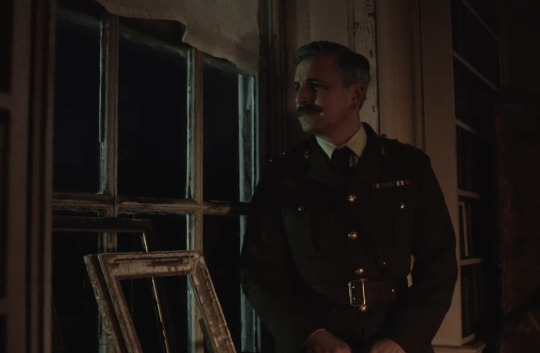
We get this image with the music they used in Redding Weddy to introduce the flashbacks between the Captain and Havers. Interestingly, in that episode, we hear the violins twice and it's always in association with the letter addressed to William – the first time, the Captain is looking at the envelope in deep thoughts and hurriedly hides it as he bids Havers to come; the second, he looks at the envelope in deep thoughts and eventually throws it on top of the bomb (his metaphorical heart), intending to bury them forever (... or until it explodes, as it were. Of course, if you repress your feelings for too long, they tend to explode in your face).
When you hear the music, you immediately understand the Captain is thinking about Havers.
The framing (pun intended) is really interesting to me. The Captain has an expression of intense longing on his face. He seems to be in the same position as he was at the end of Redding Weddy, when he sees/remembers Havers' private goodbye from afar as he left for the front; sitting at the same window; turned the same way; a similar expression on his face; both hands on the stick again. Indeed, just after, we are shown the same view of the front gate, sans Havers. If you allow me another nod: the frame is empty.
I keep talking about frames, because I find the empty frame on the Captain's right very symbolic. The association with the next shot (the image of the front gate without Havers = an empty frame) makes it all the more poignant to me. Why is the Captain's frame empty?
Frames are shown to ornate several kinds of objects in the show:
Portraits of loved ones. Fanny's husband comes to mind. Interestingly, it is the portrait of a closeted homosexual man, whom Fanny eventually learns to accept for who he was and what society was through his portrait (while a gay wedding is about to take place).
Portraits of oneself. Humphrey and Fanny are prominent ones. I just realised that both portraits get torn during the show, which reflects their fragmented identities/sense of self. I love that Fanny's portrait gets repaired, albeit not perfectly, by Alison. I love that Fanny recognises that she is still the same girl underneath. (I love that Humphrey seems mildly disgruntled and resigned at the damage on his one? It's exactly his reactions towards his recalcitrant body, and it feels very much like his whole vibe; I adore him). Also, we shouldn't forget Thomas' portrait: slowly built until he overthinks it all, gets ahead of himself and rejects the piece before it is ready... a portrait which ends up being put aside by the woman he loves (a woman who feels slighted by his hasty words even if he only wanted to be honourable). If it doesn't parallel his relationship with Isabelle and his death, I don't know what does!
Mirrors. It is a recurring theme around the Captain of course: we see his reflection in the mirror in the intro; the picture on Alison's mirror has him reminiscing about dead seagulls and start the process of resolution which saves the day.
With that in mind, I find the symbol of the empty frame can work on several layers here:
Portrait of a loved one: the frame is empty, but not because there is no one (there is still a frame). It could symbolise an absent lover (Havers left the picture through that front gate)... or a love that never became official. No one could have taken Havers' portrait for the Captain. And Havers wouldn't have given him his picture, because everything was left unsaid. Not to mention the fact that it would have been incredibly damning and dangerous for the Captain to keep the image of the man he loved around him. It had to stay hidden, invisible. So no picture, and Havers is far away and out of reach, but he is still very much present in the Captain's mind and heart. He is able access the memory of Havers not through his portrait but through his secret memories.
Portrait of oneself: a portrait (one like Fanny's, Humphrey's and Thomas') is made with care. It takes a long time to complete and it cements the way you want to (or people want you to) be remembered through time. It is a reflection of who you are, but also the way others perceive you. Humphrey and Fanny had their portraits done because they were socially important and rich people; these are very official portraits. As I touched before, they are also a sign of their fragmented selves. Both characters want to be and get to be more than this unmoving piece of history. They both lost themselves in who they were supposed to be. Through death, they are allowed to show their own individuality. For his part, Thomas gets to pose like a romantic intellectual (or an intellectual romantic?), very much the way he wants to be seen and remembered. He has someone close to him who is willing to paint him.
Now, the empty frame could be a sign that the Captain was not considered important enough in his life or was not remembered fondly enough (by the troops, for example) to capture his image. We understand that he has never been on the front, and men like Cartwright sneer at him for that reason. In a room full of officers, the heroes whose memory the Captain never fails to honour, he is readily rejected. At that point in time, there is no place in history for the Captain to be remembered (and he believes it too: "I am no hero"). The empty frame could be a symbol of his lack of active role during the war (something that is obviously important in his own identity and the way he is perceived by people who "made history"). The absence of a portrait could also reflect the fact that no close one was there to take his picture. He was not fully seen by Havers, or, once again, it was not possible for them to carry a portrait of their loved one. It was even less possible for Havers to take the time to paint the Captain or be asked to take his picture (… although... one could dream. I mean, can you imagine Havers secretly, or not-so-secretly-but-the-Captain-is-oblivious, taking a picture of him, developing it on his own and frequently gazing at the portrait of the Captain, so focused on his image that he fails to see the seemingly judgemental old lady looking over the Cap's shoulder in the background. I love the idea of Fanny & James, the repressed siblings, having a photo taken of them together before they even got to know each other). To sum up: no official loved one to preserve the Captain's image, no place in history according to his society.
Mirrors: well, it's all about the reflection of the self, isn't it? We know the Captain has difficulties with his identity. He has carefully crafted his military persona and has played the role of the strict and efficient commanding officer for decades, repressing his more sentimental and less conventional side as much as he could. A crucial part of his arc is that he buried his heart and he has to learn to accept himself and express who he is without fear. I also love the idea of inversion in relation to the Captain: in a mirror, you're looking at the inverted image of yourself. "Inversion" was a synonym for homosexuality in the Victorian era (and was still in use in the 40s). Therefore, the recurring theme of mirrors makes a lot of sense around this character. Even his decorations (over his heart) are placed in an inverted way. The empty frame could represent the lingering issue around his identity. After this moment of introspection, and faced with his potentially impeding passing, he will finally tell the truth about who he is. The frame is empty right now, but he is about to leave that behind: he gets to accept who he is. He gets to share the truth about his past and his heart. He gets to be seen (and cherished) for who he is.
The Captain is gazing out of the window, but visually the empty frame is very much part of that window. Hence the Captain is metaphorically reflecting on this empty frame. A symbol for the absence of his loved one, the lack of place in history or remembrance for him, the lack of place in history and memories for his relationship with Havers, the sense of intense self-repression. (on that note, bear in mind that up until his confession, no one knew the Captain's name. It is after this deep introspection that James is able to be open about it all)

When he comes out of his reflection (... pun intended?), we can see how intense the process is for him. It is overwhelming and painful. But when he looks away from the window/empty frame, he faces forward. He turns his eyes to the room next to him - I believe it is the room where he's about to meet the ghosts, so the room where he's about to come out. This shift means that in the Captain's mind, it is not about then anymore: it is about now. Back then he couldn't be himself; he couldn't show his heart. Now, if he's brave enough, maybe he can exist as his true self.
#bbc ghosts#bbc ghosts meta#the captain ghosts#the captain#ghosts bbc#bbc ghosts series 5 spoilers#bbc ghosts series 5#bbc ghosts spoilers#ghosts spoilers#ghosts meta#the captain's name#carpe diem#the captain and havers#capvers
153 notes
·
View notes
Text
I would like to focus on the music chosen for Hob Gadling's 80s sequence.
I'm extremely late to the world of The Sandman (finally binged it two weeks ago after my mother had been begging me to watch it with her and now I'm more obsessed than her) Bottom line: I'm unbelievably glad I finally watched this beautiful piece of television.
I have yet to read the comics but as for the first season, I have to say, without a doubt, my favorite episode is Chapter 6: The Sound of Her Wings. Death's 20-min segment is a beauty unto itself, but I'll be focusing on Hob's segment today. Specifically, his 80s scenes.
Considering I'm so late to this fandom and exploring all of its wondrous details and themes, excuse me if this has already been noted. I've been thinking about these details over and over but I need to get it out there in the Sandman world and hear everyone else's thoughts.
*Also excuse the terrible photos - Netflix doesn't let you screenshot and I was too lazy to get another app to let me bypass it. Please bear with my photos of my laptop screen.*
There are three songs that play throughout this sequence.
#1 - "She Drives Me Crazy" by Fine Young Cannibals
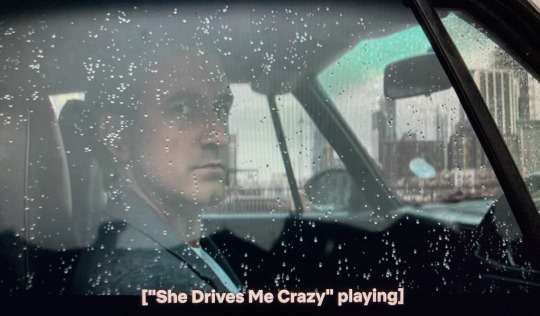
I accidentally deleted half my post mid-writing this but here I go again.
As we can see, after the breakup scene, we open up on Hob Gadling (he looks amazing in his 80s look, by the way) and this song plays.
Here are the lyrics:
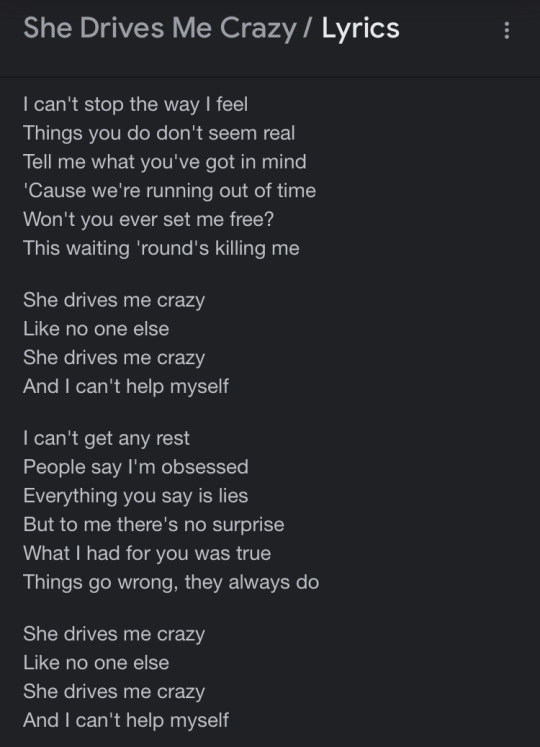
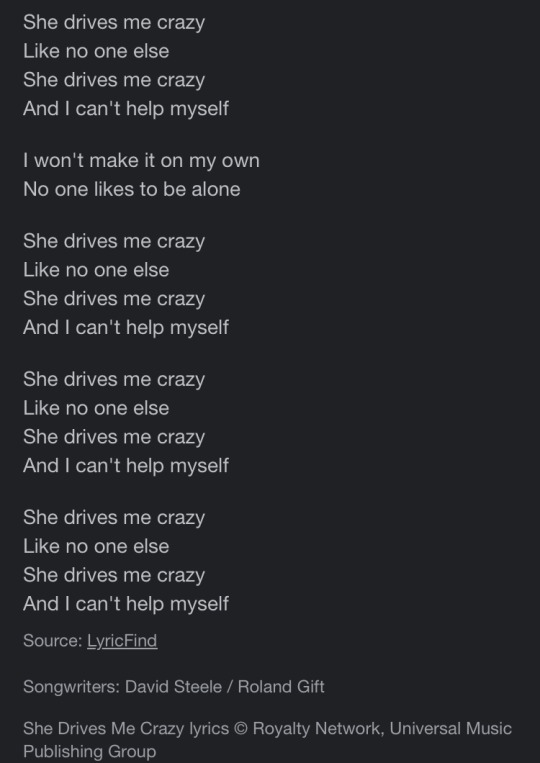
I mean - where do I even start LMAO.
*Let me just give another note - regardless if you ship Dreamling romantically or not, I will be merely analyzing these lyrics as they are and how they convey Hob's feelings for Dream in general. But, I mean, the songs are THERE, the text is THERE. So do with that what you will.*
This will go for the following two songs as well, but these songs are placed with meaningful intention. Each of these offer a unique lens and dive into Hob's feelings.

I won't be annoying and over-explain anything, but the lyrics are clear I feel:
"She drives me crazy" - cough
"Things you do don't seem real" - in Hob's view, Dream literally is an enigma. Hob has no idea the capacities, the limits, and even the name of this being he meets every century.
"This waiting 'round's killing me" - well.
"Everything you say is lies" - now I wouldn't say particularly lies, but Dream does keep and omit things from Hob. Understandably, Hob would find himself in a confused limbo with Dream.
Here's the kicker:
"I won't make it on my own/No one likes to be alone." - HELLO. I mean, if this isn't the core message and pinnacle of Dream and Hob's lesson to immortality.
As Death mentions earlier in the episode, around 18:10, "Most of us will be glad for the company of a friend."

I feel I could go on forever and ever about the beauty of this episode and how well The Sound of Her Wings and Men of Good Fortune intertwine. They beautifully complement each other as stories lamenting the dichotomy of life and death, and the joys of humanity.
But essentially, Death reteaches Dream how beautiful humans can truly be, and in this pivotal moment, she says this zinger of a line. The camera was initially on Death but for THIS line, it cuts to Dream.
BECAUSE - poor Dream is definitely in need a friend.
Which is then shown to the audience by the 30-min long Hob Gadling sequence that ensues, and we see Dream's aversion to needing someone, to needing a friend.
But I digress - back to the song, and that one line about not wanting to be alone.
That is such a poignant line, because as much as Dream felt alone and needed company, so does Hob? An immortal, constantly seeing the death of others around him, his companions and family long gone, he needs someone.
Considering this 80s sequence ruminates so heavily on post-breakup feelings, Hob is missing Dream dearly. His constant in life.
I'm rambling too much, onto the next one!
#2 - "Shattered Dreams" by Johnny Hates Jazz

Time skip to perhaps a few hours later, who knows. We see Hob still waiting for Dream, alone in the pub.

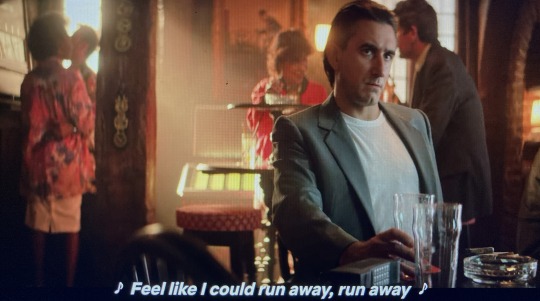
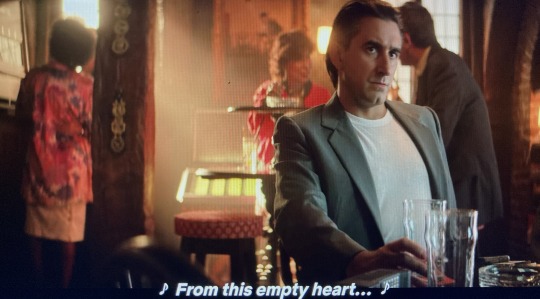
Hm.
Literally what else could I say. I'm being slapped in the face with pining and angst and longing.
Here are the lyrics:

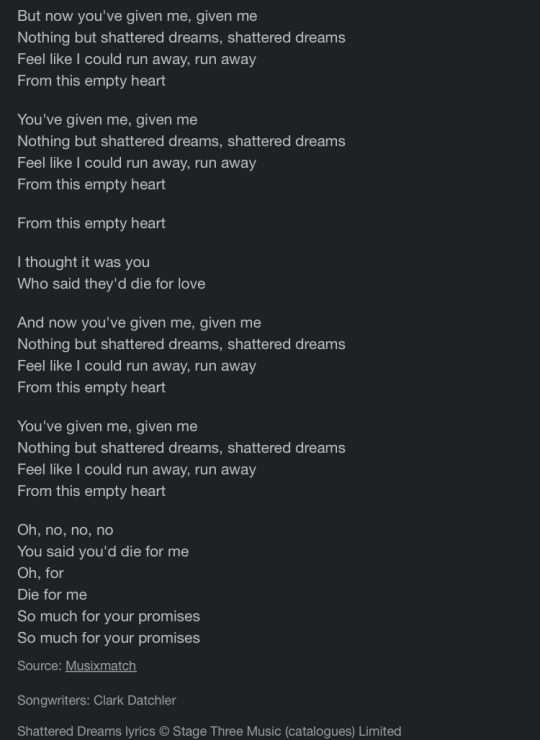
Some noteworthy lyrics:
"So much for your promises/They died the day you let me go" - this breakup man
"Caught up in a web of lies" - another lie motif
"I thought it was you/Who would stand by my side" - the theme of Dream and Hob being constants in each other's lives
"Shattered dreams" - I could scream. The title of the song. SHATTERED. DREAMS. giggling rn.
"Woke up to reality" - I think that's a very interesting line toeing between the constant references of the Waking and the Dreaming
Basically, I've been noting these evident similarities within the songs to align themselves to Dream and Hob's situation, and it's clear that the director/writers chose these songs with intent of it paralleling Dreamling.
So that makes it even more insane when lines like "From this empty heart" are meant to parallel Hob. Like.
Okay, last song.
#3 - "Keep On Moving" by Soul II Soul
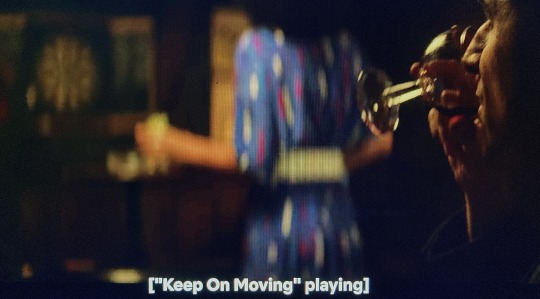
This song plays as the night progresses. It's late, it's clear Dream isn't showing up, and Hob is feeling pretty final about that, and perhaps he's accepted it at this point. Dream isn't coming.
So this is where he speaks to the bartender and that scene ensues.
Here are the lyrics:


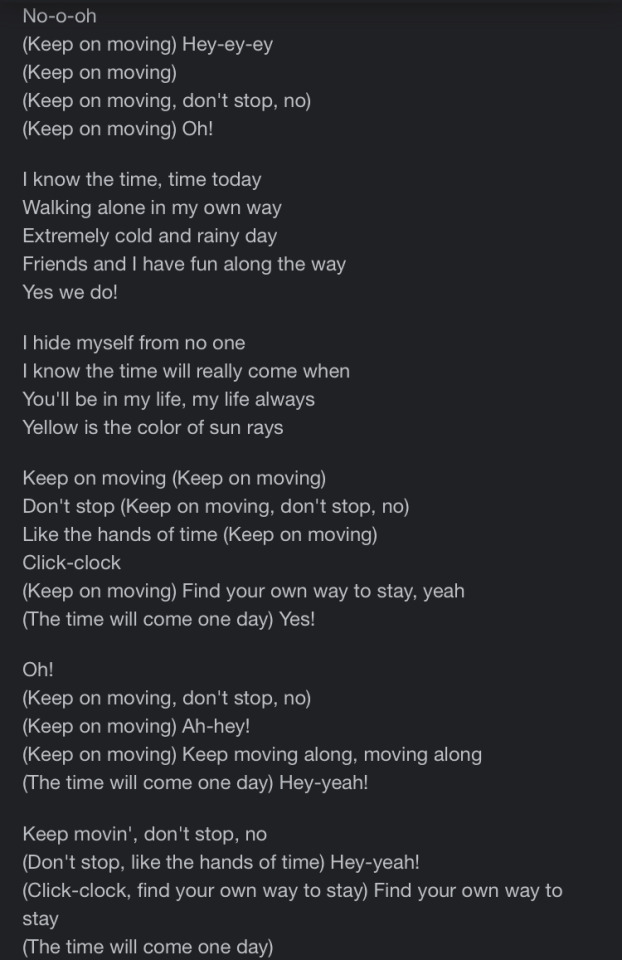
The themes of time and clocks are super prevalent within this song, and again it's once more clear how heavily this reflects and represents Hob.
Noteworthy lyrics:
"Why do people choose to live their lives this way?" - I think this also uniquely touches on the general aspect of humanity and one's reason to live/love life. Dream battles with his confusion/slight disappointment for humanity at the beginning, as he asks Death, "Why would any sensible creature crave an eternity of this?" And then Hob helps Dream realize why there's so much to live for. (24:30)
"I know the time will come today/The time will come one day"
"Walking alone in my own way" - Again this idea of walking alone and needing company.
"You'll be in my life, my life always" - Dream and Hob being constants again.
This all goes to say - Hob cares. He cares for Dream.
And I just think that's very beautiful. The magnitude with which Dream's absence means to him and how much their friendship/companionship both means to each of them. I just think their connection is a beautiful thing that I love seeing and rewatching. Wonderfully, these songs give the audience even more layered insight into this connection.
This was super long, and I apologize if I went on some tangents. But I also just couldn't help it, The Sandman is so incredibly rich in its storytelling and its connections and dynamics that I had to write this all down. I also just very much appreciate the amount of care and detail that goes into every aspect of television, and needle drops such as these three songs are no exception.
Thank you for sticking with me through this! Can't wait for season 2!
#i have more thoughts#i think i will never fully be satisfied with this post#there will always be too much to say#but wow#they CARE#there's LOVE there#genuine love#i love them#dream the endless#lord morpheus#king of dreams#hob gadling#hob#dreamling#dreamling meta#dream x hob#the sandman#music as outlets to the soul#and emotion#music#the sound of her wings#men of good fortune#i hope whoever read this enjoyed!#thank you
286 notes
·
View notes
Note
Me: omg I love the SoH ROs so much all I wanna do is daydream about them
Me, daydreaming about them: what if they almost died... What if they're bleeding out... What if the MC is bleeding out...
Unfortunately they're all blorbos now, which means I want them to suffer (affectionate)
Which brings the question, in a near death situation, which one of the ROs goes for a dramatic one liner and which one tries to actually say something meaningful?
Blade: he isn't one for drama so I feel like he just wouldn't really think, "i'm dying so this may be my last chance to say something," and would just be like "you... need to get out of here..." (always thinking of the other person), but if he did think he was dying, he'd try to say something meaningful!
Trouble: I don't think Trouble thinks he can be killed for real so he'd probably not even notice the severity of his own wounds, like "I'm fine, stop fussing over me and help [someone else wounded] or get after the enemy or etc.!!!" Not necessarily being nobly selfless like Blade, just sort of not aware how close he is to death and so isn't thinking about it/taking it seriously
Tallys: if she actually thinks she has a real shot of dying, she's staying calm and composed for the other person's sake and is going to fade away with quiet dignity, but she's definitely going to exchange some of the most heartfelt, gut-wrenching, meaningful words anyone's ever heard in their life on her hypothetical deathbed
Shery: I think she'd be sort of panicking and hysterical and trying to think of something meaningful to say, but it'd probably come off as menial, like "Make sure to look after Caine, and... please look after my plants..." Like frantically trying to go down a checklist and sort of being confused and panicky rather than having the wherewithal to actually say what she'd want to say in that kind of situation!
Riel: he'd be extremely calm and would be dishing out instructions on how it's going to go down and what's going to happen next. Basically getting his affairs in order in an efficient and tidy way as he's like literally bleeding out lol, by his composure alone you wouldn't think he was wounded! Basically the exact opposite of Shery, and it would only be in the final few moments of consciousness that he could stop being totally "logical" and he'd get quiet and be like, oh. this could actually be the end. In which case he'd try to sneak in something heartfelt and striking and poignant, but he'd probably have expended all his energy on the first part and would lose consciousness halfway through, so no one would know what he was going to say, and he "wouldn't remember" when he woke up lol
Chase: I think it really depends on the situation... he's been in so many near-death scenarios that he's gotten out of perfectly fine that it's a bit hum-drum for him now, so if it's a simple matter of "oh no i've been shot and i'm bleeding out" he'd probably go for the quip or the dramatic one-liner purely to put the people around him at ease or get them to crack a smile, but if it's like a "oh I'm already dead and there's no way anyone's going to save me except by literal intervention of the gods", maybe he'd say something more meaningful?? It really depends on who's with him and how lucid he is, though!
Red: he'd try to be bracing and good-hearted about it so as to not worry anyone or sabotage himself while he's down (he's of the mindset that if you embrace/accept death too preemptively, you're more likely to die, whereas if you act like it's going to be fine, there's a higher chance that, like, placebo effect will somehow help you pull through), so he'd be like, "Don't worry, haha, I've had worse..." *is bleeding out from a gut shot* "YOU HAVE??" "Well, no, but it hardly hurts..." I think if he genuinely thought it was too late for him, he'd say something meaningful, but it would take a lot for him to get to that point lol
Ayla: I feel like she'd just be pissed and not accepting the gravity of the situation, like, "Why are you all looking at me like that, I'm fine??? Blood replaces itself, you are being dramatic" So she probably wouldn't "waste time" on being sentimental when she can just WILL herself to get better, but if it got to the point where she thinks it's genuinely over, she'd abruptly get scared, emotional, tearful, and she'd probably choke out something vulnerable, like "I don't want to go like this..."
Briony: I think she'd be in shock and would behave similarly to Shery where she would just be saying whatever was racing through her mind, so it could possibly be meaningful and vulnerable, like "I always wanted to... [x]" or it could be somewhat nonsensical or brushing the whole thing off, like "It's just a scratch, I just need to rest, make sure that so-and-so is seen to because I saw that they were limping..." (thinking she's just going to pass out now)
Lavinet: I think she'd be very noble and dignified and graceful in near-death, like she'd arrange herself very beautifully and would be lying there in some infirmary bed with her hair spread out across the pillow as so-and-so clutches her hand and weeps and she murmurs to them to not to worry and tells them "her last words" in a delivery and meaningfulness straight from a dramatic novel
Halek: I think the first time he'd say something so flippant and stupid, like "Holy shit, getting shot is such a pain" -> 😵 (passes out) and if he had the luck of waking up again he'd be like "oh my god those could have been my last words" and he'd take it more seriously the next time and try to think of something more meaningful beforehand lol
#Shepherds of Haven#angst#sort of#it's more silly than anything but there you have it!#all characters#hypothetical scenario#near death#near death experience#dying
82 notes
·
View notes
Text
Phantom Ramble
I think one of the reasons I'm personally so resistant to viewing Erik and Christine's relationship as a romantic one is due to the fact that for most of the book I don't fully trust Erik as a character and I can't imagine Christine does either.
Erik has a pattern of creating himself, whether it's the phantom of the opera, the angel of music, or even "Erik" we never really find out who he is. He says he wants to be loved for himself but he never is himself. He keeps himself hidden out of fear of rejection. Not just on a physical level but on an emotional one as well.
The name he gives Christine "Erik" is a name he came upon "By accident" and I've seen some people mention that in earlier versions of the story, like the original newspaper in which it was serialized, Christine stated that Erik picked that name because it's Scandinavian and he was hoping to use it to get closer to her, which is definitely a thing he would do and if not for the fact that the Daroga also knew him as Erik in Persia I would agree that's the most likely explanation.
I've always felt strongly that Erik cannot be taken at his word. He strikes me as the type to say anything he has to say to get what he wants and he has grown so accustomed to wearing masks that he is unable to take them off. Even when he's physically unmasked he still can't bring himself to reveal who he really is. Perhaps because he doesn't really know anymore, he has become his masks. His deformity made it necessary to hide from the world and every angel, phantom, friend, teacher or father figure he became feels like had to be meticulously created so he could slip on the role and play the part convincingly enough to fool those around him. This includes Christine. I think he was hoping that Christine would be the one who could see past the performances and I don't think she's able to for the majority of the book. Even when she's fascinated by him or feels pity she never comes across as someone who really KNOWS him. That's not her fault he has, intentionally and unintentionally, made himself unknowable.
Even the Daroga doesn't really know Erik, he has more insight than most people but Erik is as much a mystery to him as to anyone else.
Erik's world is the theater and he is a perpetual actor in his own narrative. It's instinct for him to simply become whatever he needs to be to frighten people away or draw them closer and I don't think he knows how to stop doing that anymore. He's so distant from himself that views his real self as dead, the real him is nothing but a corpse.
I think that's also what makes the ending, the final unmasking so poignant to me because that's the moment when Erik, the living person, not the character, is seen for the first time. It's the mask coming off for real at last.
"I tore off my mask so as not to lose one of her tears… and she did not run away!…and she did not die!… She remained alive, weeping over me, weeping with me. We cried together! I have tasted all the happiness the world can offer"
What Christine offers him in this moment isn't what I interpret as romantic love it's acceptance, it's compassion, it's seeing him and understanding him. She gives him this when he least deserves it and I feel like this is what makes Erik's redemption meaningful. That his humanity is acknowledge in his darkest moment by the person he's hurt the most. That he is shown that much grace and kindness and that he lets her go without getting the romantic fulfillment he was trying to coerce from her will always be infinitely more touching to me than seeing them in a successful romantic relationship.
I think I also just get tired of seeing romantic love touted as some be-all-end-all redemptive healing force and the thing that could "fix" this character and give him a happy ending.
Again, not saying people can't or shouldn't write their fluffy comfortable or their dark twisted Eristine fics, by all means, have fun and enjoy what you do, but I feel like there's very little appreciation for the redemptive arc in the book that isn't viewed through a romantic lens.
59 notes
·
View notes
Text
Story of Kunning Palace Ep. 14: Redemption in life

Jian Xuening: Between my past self and present self, who do you think is better?
Xie Wei: Be it the past or the present, it is all you. You're the one and only Miss Ning'er. Besides, the present exists because of the past. Just face it as is. But if we have to make it clear, I think if the present Ning'er knows what she wants, she will be well. And she'll be even better in the future.
Kyaaaa, the scream that just came out of me. This scene from Episode 14 solidified for me why Xie Wei is Jiang Xuening's endgame. Although Zhang Zhe is dreamy and represents the virtuous life Xuening regrets not pursuing as empress, it is ultimately Xie Wei who complements her character. Xuening's story arc isn't just about becoming a better person but also about recognizing that she has always had goodness in her and that goodness makes her life worth just as much as someone like Zhang Zhe. And it is Xie Wei who reminds her of this. She is an "unrefined jade", someone who can choose a more righteous path than the one she started on.
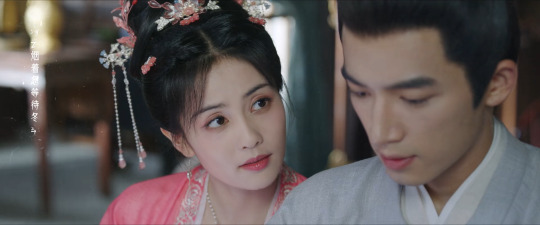
Xuening gave up her life for Zhang Zhe to make amends but also because she idolizes him. In a way, she sees him as more than just a man; he's the embodiment of what is good in the world--the opposite of how she sees her past self.
What I find interesting about their interactions are the small ways she tries to mold herself to fit Zhang Zhe's preferences. (I laughed when her voiceover at the antique shop admitted she didn't know anything about antiques but she would learn for him. Girl, same.) They don't have the fragile but freeing honesty Xie Wei and her have slowly cultivated, and I have a feeling her approach will become exhausting in the long run.

In contrast, Xie Wei argues that she has always had a choice to be a better person because she fundamentally is a good person. Despite being brash and cunning, Xuening is also tenacious, brave, and even kind (all of which Xie Wei recognized when they first met years ago). It is only in life not death that there is the possibility of redemption; she just needs to seek it.
And he sees her.
Truly sees her.
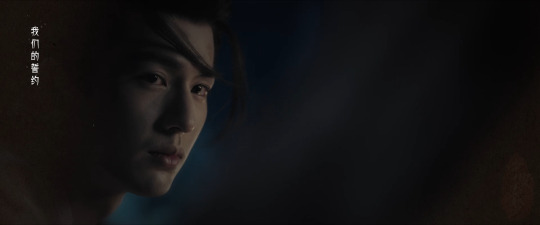


(I have to hand it to Zhang Linghe. These scenes are some of the best acting he's done in years.)
In every timeline, he has watched (over) her and recognized her for her, whether that was by
Calling her Ning'er because of the three words in her name, only "Ning" is her name alone. I think this is particularly poignant given his own estrangement from his family. When they first met, she was still a normal village girl who hadn't officially joined the Jiang family while he had long forsaken his father's name. "Ning'er" is intimate, thoughtful, and honors that shared history;
Apologizing for his anger after assuming the worst of her scheming (e.g., when she was supposedly endangering Yan Lin);
Bringing her sweets when he saw her other study mates had ignored her, even baking them according to her preferences; or
Appreciating her strategic thinking and offering her guidance despite how her plans might complicate his own.
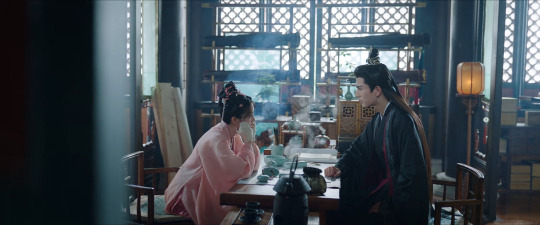
Both Xuening and Xie Wei are people readers (but completely blind to each other's growing feelings, of course), but Xie Wei also uses those skills to care for Xuening in ways that are meaningful to her. He's not changing himself like Xuening wants to do for Zhang Zhe (i.e., how can I fit myself into his world) but instead offering relief (i.e., how can I make her world better).
I can't wait for her to truly see him back so he can redeem himself.
103 notes
·
View notes
Text
An Ode to Somewhere Else
With the official release of the Magnus Protocol coming up so quickly, I find that I'm upset with how it'll change the Magnus Archives, specifically the ending.
It was a phenomenal ending. Poignant and emotional, it felt like the perfect bookend to the story. I started balling my eyes out the moment the last tape finished. It allowed for a bit of closure with the more secondary main characters, but left the two we'd been following since the beginning up in the air.
Sure, happy endings are wonderful. It's always nice to hear every question answered. But ambiguous endings are so deep and meaningful, far closer to what you'd find in real life. Not everything is happy or set out in black and white. We can never predict what the future holds. Sometimes you get lost. That's life.
And I think that's what Jon and Martin needed. Was to get lost. No matter which way you look at it, they both had a hand in ending the world. They saw so much fear and suffering and couldn't do anything about it (not that they didn't want to). They - and by extension, the audience - knew so much. That's what makes the original ending so beautiful. They finally don't know something. We finally can't see something.
And that lack of clarity gave way to some of the most beautiful things I've ever read. The amount of TMA AUs that begin with Somewhere Else is insane and I love it. It's great that we can finally imagine them getting a happy ending. Or we can imagine them becoming even more tragic. Or both. Or neither. It's an open ending; that's what they're for. Ambiguity invites imagination.
It's not that I'm not excited for the Magnus Protocol; I'm hyped. I just wish that I listened to the Magnus Archives back before the sequel was announced, where the last click of the button was the sound of an ending spilling into somewhere else.
#alexa: play 'no happy ending' by the mechanisms#i don't intend to be negative about tmp#just reminiscing on the end of tma#the magnus archives#the magnus protocol#tma#tmp#magnus#magpod#johnathan sims#martin blackwood#basira hussain#melanie king#georgie barker#writing#somewhere else#corner conversations
46 notes
·
View notes
Text



So my friend really wanted to get into Adventure Time so she could watch Fionna and Cake with all the context, but she didn't want to watch the first couple seasons. So I made her a handy dandy guide to the most important episodes from seasons 1, 2, and 3! It's unhinged women themed!
(Also all credit to @jamjoob because I spent literal hours staring at their AT fanart trying to figure out how the FUCK they make the proportions look so good. I can't give them noses my hands won't let me but I have no clue how to draw faces this simplified. So. Everybody say thank you to jamjoob)
I think Adventure Time is incredibly interesting when you look at the pacing. I started watching the show when I was like 9 or 10, and it had a perfect combination of simplicity, irreverence, and creativity that hooked itself into my brain. And I didn't even notice, but even though I was a year or two off, the show matured with me at exactly the pace that I needed. It never shot ahead of me or lingered too long in old trends. As my ability to appreciate complex storytelling and multifaceted characters grew, the show grew to give me those things in a way I could handle. I don't think I've ever had another experience with TV quite like it. I literally grew up with Finn, and only when I went back to watch the first three seasons did it hit me that both the characters and I had outgrown them. I was the perfect age to appreciate season 1 when I saw it, just like I was the perfect age to fully appreciate season 10 when it came out, and now Distant Lands and Fionna & Cake are more relevant and poignant and meaningful to me than I ever could have imagined.
#adventure time#marceline abadeer#marceline the vampire queen#betty grof#magic woman#princess bubblegum#bonnibel bubblegum#coffeepaintart
71 notes
·
View notes